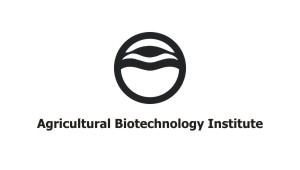
ABC - Department of Genomics - Plant Tissue Culture Group
Research Interests
Tissue Culture Laboratory offers high level service on dihaploid (DH) pepper production, moreover we do research and development on DH cucumber.
1. Production of homozygous doubled haploid (DH) pepper lines by in vitro anther culture, according to the interest of the pepper breeders
2. Development of in vitro ovary culture technique to produce DH cucumber.
Current Research Projects
- Production of homozygous doubled haploid (DH) pepper lines by in vitro anther culture
- Development of in vitro ovary culture technique to produce DH cucumber.
Production of homozygous doubled haploid (DH) pepper lines by in vitro anther culture
Plant Tissue Culture Laboratory possess more than 20-year-old practice in production of doubled haploid (DH) pepper lines under aseptic conditions. Our method, in vitro anther culture is based on direct embryogenesis. Due to this haploid technique, lots of genetically homozygous lines can be produced from the anther donor plants per year. Recently, this tissue culture technique became a high efficient tool for competitive and market oriented pepper breeding and farming.
Dissection of anthers, containing microspores at the stage of pollen mitosis I. is carried out after surfice sterilization. During in vitro maturation of uninucleate microspores, sporophytic divisions can be observed leading up to formation of multicellular pollen. As a result of embryo differentiation, many embryos can be induced from these multicellular pollens which later simply develop into rooted plants (direct embryogenesis).
Normal microspore division results in a regenerated plant characterized by haploid chromosome number (n=12). However, if division of the cell nucleus doesn’t followed by cell wall regeneration, a new cell is formed with two haploid nuclei inside. Further divisions of this cell are resulted in doubled haploid plants (2n=24). Since these spontaneous DH plants contain doubled male genom, they are considered as genetically stable, non-segregating homozygous lines. Genom reduplication of the haploid regenerants can be achieved by colchicin treatment. These, so called induced DH lines are equivalent to the spontaneous doubled haploid individuals both in fertility and other traits.
| Regenerated pepper plants from anthers |
Acclimatization of induced and spontaneous DH plants |
Dihaploid pepper lines in our greenhouse |
In the last years, our routinely used haploid technique have been highly assisted laborious work of pepper breeders, with regard to their variety- and resistance breeding work. Getting a new variety in a homozygous form, characterized by genetically stable traits, needs lots of back crosses. Using classical breeding technique it takes at least 6-8 years in pepper. On the other hand, in vitro anther culture method has a great advantage of time saving, as one generation takes only to produce homozygous lines from a given breeding material.
In respect of our method we would like to emphasize its practical importance, even more its availability on a service level, especially in non-spice pepper varieties. Thus, we are intent on executing long term and fruitful collaborations with Hungarian pepper breeders and breeding companies.
Development of in vitro ovary culture technique to produce DH cucumber
Recently we started research and development in cucumber to obtain homozygous lines. Our long-term goal is to develop efficient haploid regeneration protocol in this species which progeny (the DHLs) could be integrated in breeding programmes, similar to pepper. In collaboration with the breeders we focus on the most important and promising genotypes and breeding lines taking into account the market needs and expectations.
Cucumber market demands available hybrids with multiple disease resistance. Because of multigene inheritance of these resistances (downy mildew – 4 recessive genes, oidium – 3 recessive genes, bacterial leaf spot square – 4 recessive genes, CMV – 3 recessive genes) getting homozygous cucumber lines by conventional breeding methods takes extra long time and costs. DHLs from ovary- and ovulum culture (gynogenesis) in F2 or F3 generations could be significantly speed up this process.
Staff
Publications
Publications (1995 – present)
Poster:
Fekete Zsófia, Mitykó Judit (2018): Dihaploid uborka (Cucumis sativus L.) vonalak előállítása in vitro ováriumkultúrák összehasonlító vizsgálatával. XXIV. Növénynemesítési Tudományos Nap. Magyar Tudományos Akadémia, Budapest. 2018. március 6. Absztrakt 81. o.
Poster presentation:
Zsófia Fekete, Judit Mitykó (2018): Production of doubled haploid cucumber (Cucumis sativus L.) lines based on comparative experiments of in vitro ovary culture. “FIBOK 2018” ELTE, Budapest. 2018. március 28.-29. Abstract Book 62. pp
Scientific papers:
Mitykó, J., Gémes Juhász, A. (2006): Improvement in the haploid technique routinely used for breeding sweet and spice peppers in Hungary. Acta Agronomica Hungarica Vol. 54(2):203-219.
Bárány, I., Gonzáles-Melendi, P., Fadón, B., Mitykó, J., Risueño, M. C., Testillano, P. S. (2005): Microspore-derived embryogenesis in pepper (Capsicum annuum L.): subcellular rearrangements through development. Biol. Cell, 97, 709-722.
Bárány I., Testillano, P. S., Mitykó, J., Risueño, M. C. (2001): The swich of the microspore developmental program in Capsicum involves HSP70 expression and leads to the production of haploid plants. Int. J. Dev. Biol. Vol. 45. Supplement 1, 39-40.
Venczel, G., Mitykó, J., Zatykó, J., Fári, M. (1996): Utilization of androgenic doubled haploid (DH) lines in the improvement of an open pollinated pepper (Capsicum annuum L.) variety. Horticultural Science 28, (1-2): 14-18.
Mitykó J., Andrásfalvy, A., Csilléry, G., Fári, M. (1995): Anther Culture Response in Different Genotypes and F1 hybrids of Pepper (Capsicum annuum L.). Plant Breeding, 114 (1), 78-80.

